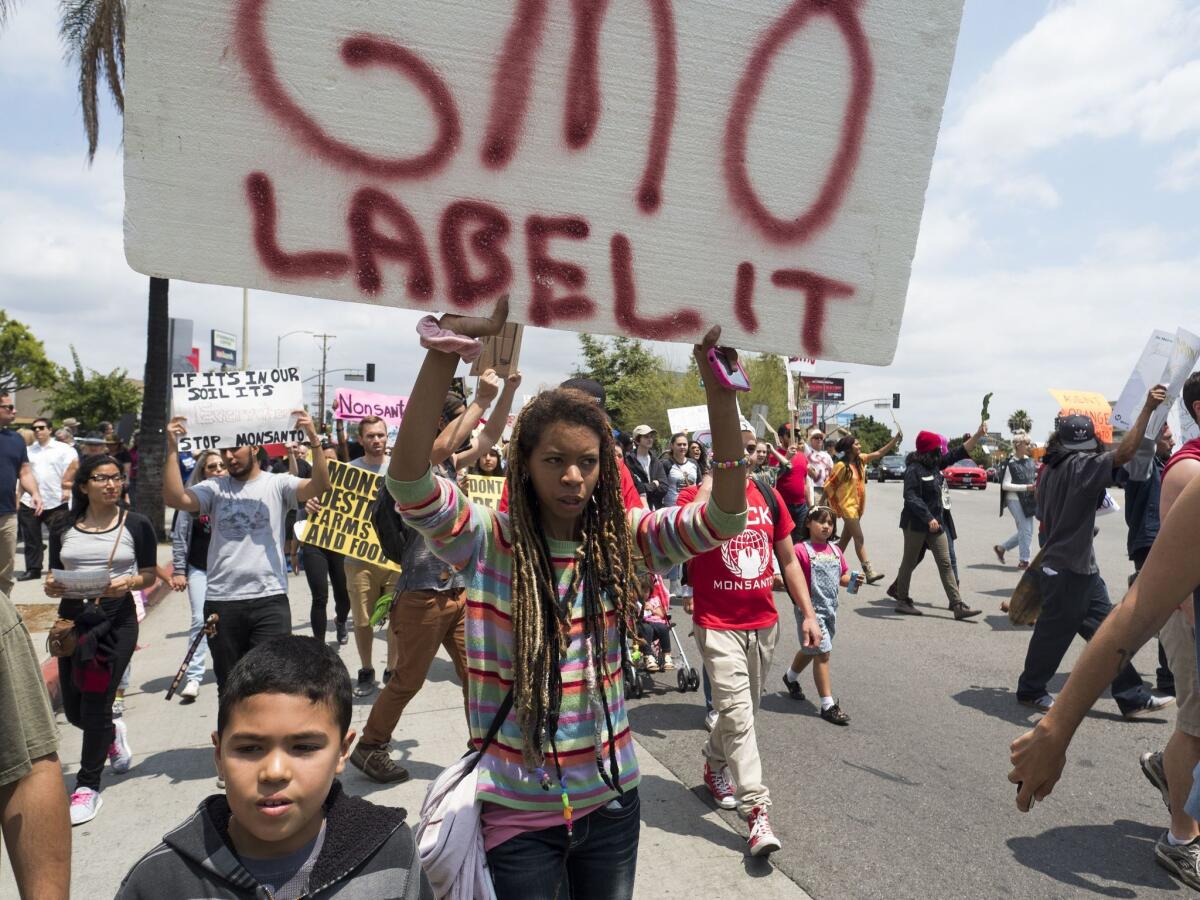Editorial: Who can label Frankenfood?

Activists take part in a march against US agrochemical giant Monsanto and GMO food products on May 23, in Los Angeles.
There have been ill-conceived attempts in various states, including California, to require special labels on genetically modified food. Such laws are not warranted by science or logic. There has been no proof found of harm to human health from bioengineered food. And while it’s true that there are valid questions about how herbicide-resistant genetically modified food affects the environment, the U.S. doesn’t usually require labels about these issues. There are no laws, for example, requiring food labels to indicate which pesticides have been used on plants or animals or in what other ways they have been hybridized. But the idea of genetic modification in a laboratory sets off primal fears, reflected by the epithet used by opponents to describe such products: Frankenfood.
Even though labeling efforts are an overreaction to a little-understood technology, federal legislation to prohibit states from imposing GMO labeling laws is an unacceptable solution. H.R. 1599, which does just that, is in effect a special carve-out for Monsanto and other bioengineering firms. And the bill has worsened as it has made its way through various committees, with provisions that would make it harder to inform consumers about engineered food. Call it the Frankenbill.
There is a certain logic to having uniform labeling rules across the nation rather than rejiggered wording on cereal boxes and tubs of margarine in each state. But existing law allows states to require additional labeling as long as they don’t mess with the federally regulated ingredients list and nutritional breakdown. If there are problems with the way those responsibilities are divided, then Congress should address them in a bill to define new powers for each level of government. But by intervening solely on behalf of producers of bioengineered food, H.R. 1599 is more a special gift for a single industry than an attempt to clarify regulatory authority.
Even the Food and Drug Administration would find its regulatory powers hampered if H.R. 1599 were to become law. For now, the FDA has determined that genetically modified ingredients don’t require special labeling, but it has reserved the right to reverse course on that. The bill includes a provision that would restrict its authority to do so.
H.R. 1599 also would set up a voluntary program under which companies could certify that their products are free of bioengineered ingredients and label them as such. Voluntary labeling is a fine idea, and it already exists through an organization called the Non-GMO Project. But the government program, run by the Department of Agriculture, would set up less rigorous standards for certification, confusing and misleading consumers.
This hodgepodge of anti-consumer provisions, written to protect an unpopular industry, is scheduled to come before the House floor Thursday. It should be swiftly defeated.
Follow the Opinion section on Twitter @latimesopinion and Facebook
More to Read
A cure for the common opinion
Get thought-provoking perspectives with our weekly newsletter.
You may occasionally receive promotional content from the Los Angeles Times.






